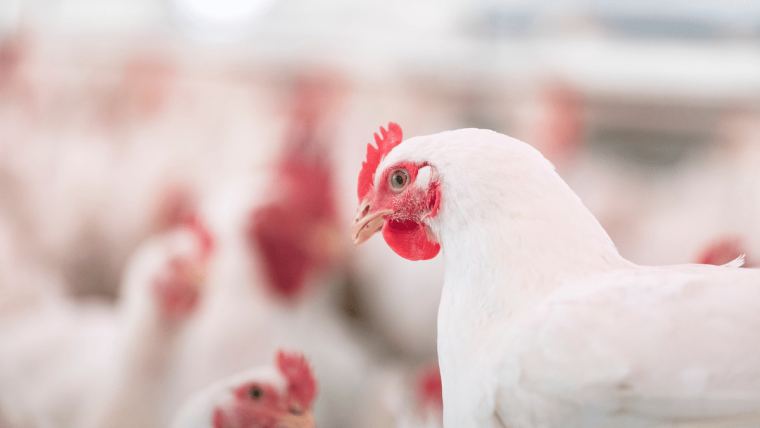Diagnosing the first human case of Avian Influenza, or Bird Flu, in Texas, United States has raised global concern. State health officials have confirmed that an individual contracted the virus after coming into contact with infected animals.
This incident is worrisome as human transmission of the H5N1 strain from domestic animals is rare.
Experts are particularly alarmed about the potential for mutation. Should this new avian influenza virus merge with a human flu virus, it could result in severe consequences. The situation underscores the urgent need for collaborative efforts worldwide to address and mitigate the threat posed by this emerging variant of Bird Flu.
What is Flu?
Avian influenza, popularly known as bird flu, is a disease in animals caused by infection with bird influenza Type A viruses. Bird Flu viruses usually infect wild aquatic birds and can spread among domestic poultry as well. In specific situations, these viruses can infect other bird and animal species as well.
As per the research, Bird Flu viruses do not infect humans usually. However, in certain situations, some cases of bird flu in humans have also been diagnosed. Recently, a human bird flu patient has been an example of this.
Bird Flu in Birds
Avian influenza or Bird Flu in birds is the most initial stage of virus spread. In wild aquatic birds, influenza viruses occur naturally and infect domestic birds and other bird and animal species.
Main wild aquatic birds that may spread the virus to domestic animals include;
- Waterbirds such as geese, ducks, swans, gulls, and terns
- Shorebirds such as storks, sandpipers, and plovers
According to the CDC, wild aquatic birds are the reservoirs of avian influenza A viruses. These viruses can affect the intestines and respiratory tracts of wild aquatic birds. However, some same species, like ducks, do not have any such complications.
Infected birds or virus preservers can spread influenza through their saliva, nasal secretions, and feces. Susceptible birds may become infected with the virus when they go in contact with infected birds or if they touch the space where an infected bird was sitting.
Bird Flu in Pets and Other Animals
Bird Flu mainly spreads among wild aquatic birds and domestic poultry. However, certain types of viruses can also spread among other domestic animals as well. As per the research, Mammals who eat (presumably infected) birds, including but not limited to wild animals like bears, seals, skunks, foxes and domestic animals like cats and dogs.
During 2004 Thailand Flu and 2006 Northern Germany outbreaks, H5N1 was detected in some domestic animals like cats, goats and dogs.
In simple terms, domestic animals who go outside and exposed to sick or dead birds infected with the virus are at higher risk of becoming infected.
Bird Flu in Humans
Although the Bird Flu virus generally does not spread to humans. However, in some rare situations, humans may also be infected with the Flu viruses. The severity of Bird Flu in humans may range from no symptoms to death.
According to health professionals in the United States, Asian lineage H7N9 and H5N1 viruses are mainly responsible for human infections.
Viruses can spread from infected birds and animals to humans through contact with their saliva, mucus, and feces. When a person handles an infected bird or animal, the virus can transfer to their hands. If the individual then touches their eyes, nose, or mouth, the virus can enter their system and cause infection.
Viruses in air or dust can also infect you by entering your system while breathing.
Additionally, consuming uncooked meat from an infected animal or bird can lead to the same disease. This highlights the importance of proper food handling and cooking practices to prevent the spread of viruses from animals to humans.
US CDC Alert: Check Risk Factors and Treatment of Meningitis
Symptoms of Bird Flu or Avian Influenza
The signs & symptoms of Bird Flu or Avian Influenza can vary from species to species. They may also vary from animal to human.
Symptoms of Bird Flu in Birds & Pets
Every infected bird or pet does not show the same signs and symptoms of influenza. However, some common symptoms may include the following:
- Low energy or appetite
- Sudden death with no prior signs
- Reduced egg production or soft eggs
- Lack of coordination
- Nasal discharge, sneezing, or coughing
- Diarrhea
Symptoms of Bird Flu in Humans
There are too few human cases of Bird Flu to evaluate the exact and all the signs and symptoms. However, according to professionals, the symptoms of Bird Flu in humans may range from no symptoms to death.
Some basic symptoms may include:
- Eye redness, known as conjunctivitis
- Mild or severe pneumonia
- High fever
- Muscle and body aches
- Fatigue, headache and shortness of breath
- Vomiting, nausea, and seizures.
Detecting Bird Flu in humans
Bird Flu virus in humans cannot be solely diagnosed just on the basis of signs and symptoms. The individual will also need laboratory testing to confirm whether it is a Bird Flu virus or some normal influenza virus.
Professionals usually collect a swab from the upper respiratory (throat or nose) of the sick person and then test it in the lab.
Future Concerns Regarding Bird Flu
Professionals believe that Bird Flu viruses can be a big concern for the entire world. The first concern is that there is no official treatment available for bird flu in humans.
Secondly, the avian influenza viruses, after infecting a man, can mutate with the normal human influenza viruses. This may be hazardous for humans.
Researchers are concerned that the current bird flu affecting part of Africa, the Middle East, and Europe could become a global pandemic if the virus does mutate.
Treatments and Precautions for Humans
Bird Flu Treatment
In most cases of Bird Flu in humans, professionals recommend basic antiviral medications. People who developed bird flu like symptoms or were exposed to an infected animal or bird should use antiviral medications.
Sometimes, professionals recommend medications like Relenza or Tamiflu for the treatment of human cases of avian influenza.
The current human influenza vaccines are not that effective in human cases of bird flu. However, certain vaccines are currently under production that directly address the Bird Flu viruses. Still, people who may be exposed to bird flu should get a normal influenza vaccine to minimize the risk.
Bird Flu Precautions
People should take all necessary measures to avoid avian influenza. Some necessary measures may include;
- Avoid contact with domesticated or wild birds and animals. Do not visit places where birds or animals are living in a group.
- Use protective equipment like N95 masks, gloves, and eyeglasses. If N95 is not available, use another mask.
- Do not touch your mouth, eyes, or nose after contacting birds or surfaces that may be infected with the virus.
- Clean your hands and nails before eating or drinking some food or juice. Always wear clean clothes.
For more information, please visit with your doctor or healthcare provider.
Note: The information available here is based on different Google sources. Please do not consider it a substitute for professional advice. Symptoms and treatments can vary based on individual conditions.
Also read: New Medical Emergency: Dengue Symptoms and Treatments












2 thoughts on “All You Need to Know About Bird Flu or Avian Influenza”